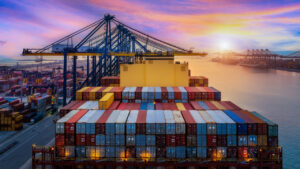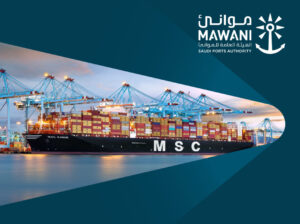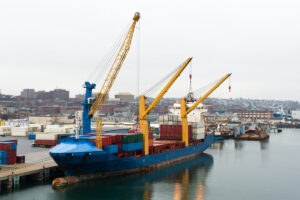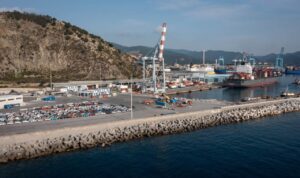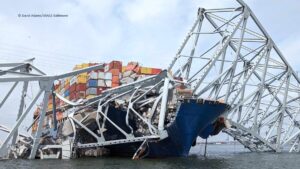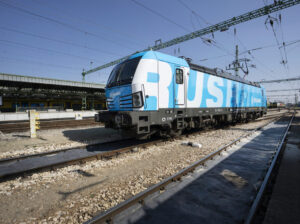Hapag-Lloyd has announced that one of its vessels, the Montreal Express, left the Port of Rotterdam powered by an environmentally-friendly ‘B20 fuel’, a combination of low sulphur fuel oil (LSFO) and bio-diesel based on cooking oil.
In a statement, the carrier said the ‘B20’ fuel is 80% LSFO and 20% biodiesel made up of resources previously used in the catering and service industry.
It also said that the test was the latest step in Hapag-Lloyd achieving its climate-protection goals.
Jorg Erdmann, Hapag-Lloyd’s Senior Director Sustainability Managament, said the carrier wants to cut its CO2 emissions by 50% compared to 2008 levels.
“Biofuels like ‘B20’ can help us reach this target,” Erdmann said.
“This is because, in addition to having a low sulphur content, the fuel also emits less climate-damaging CO2 during combustion.”
The bio-diesel generates up to 90% less CO2 emissions than conventional fuels.
Hapag-Lloyd intends to use the test run with the ‘Montreal Express’, which operates in the St. Lawrence Coordinated Service 2 (AT 2) between Europe and Canada, to gain experience and information on the properties of the fuel in real-world use.
Jan Christensen, Senior Director, Purchasing and Supply, said Hapag-Lloyd is “checking to see whether the share of biodiesel has any adverse effects on the equipment and the fuel processing on board the vessel.”
If the test is successful, it will aim to have more vessels in its fleet using B20 fuels in the future.


